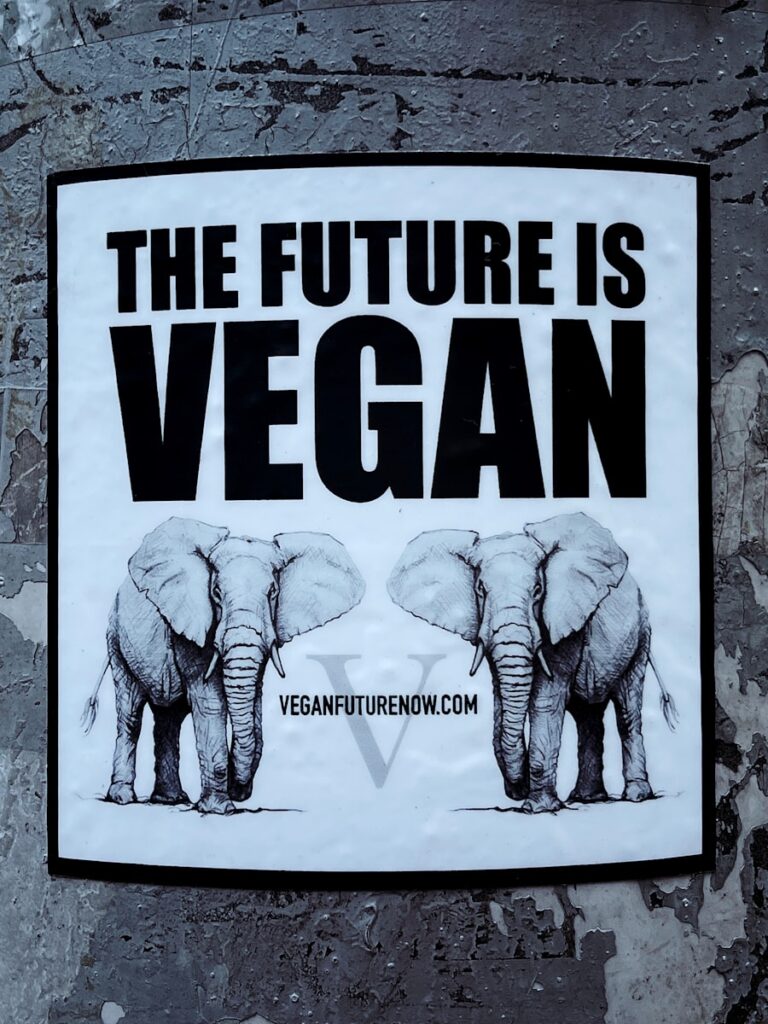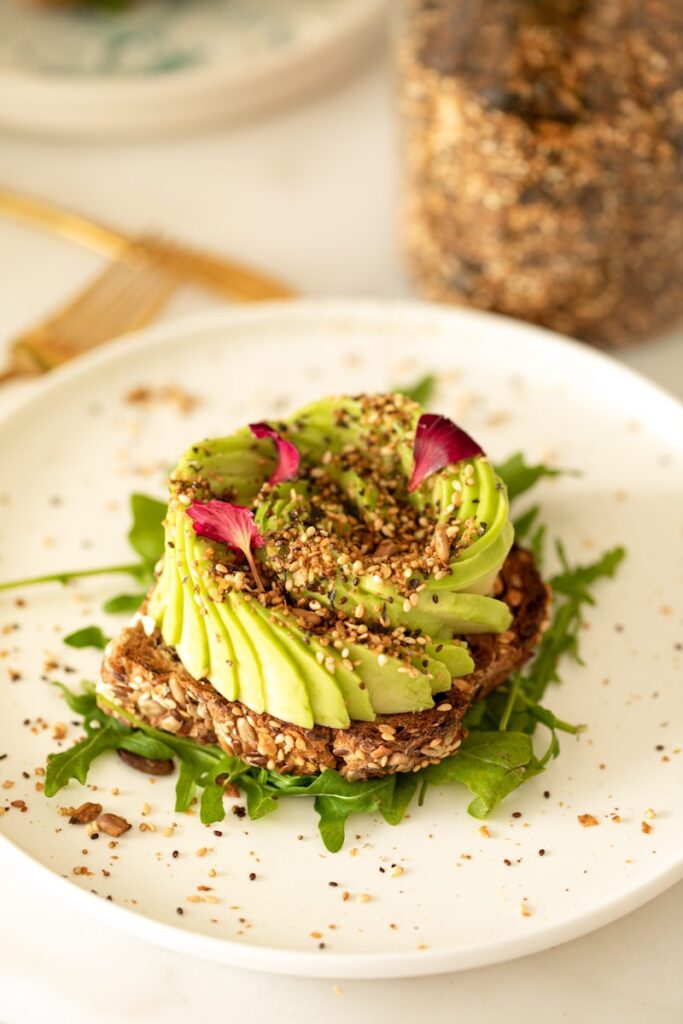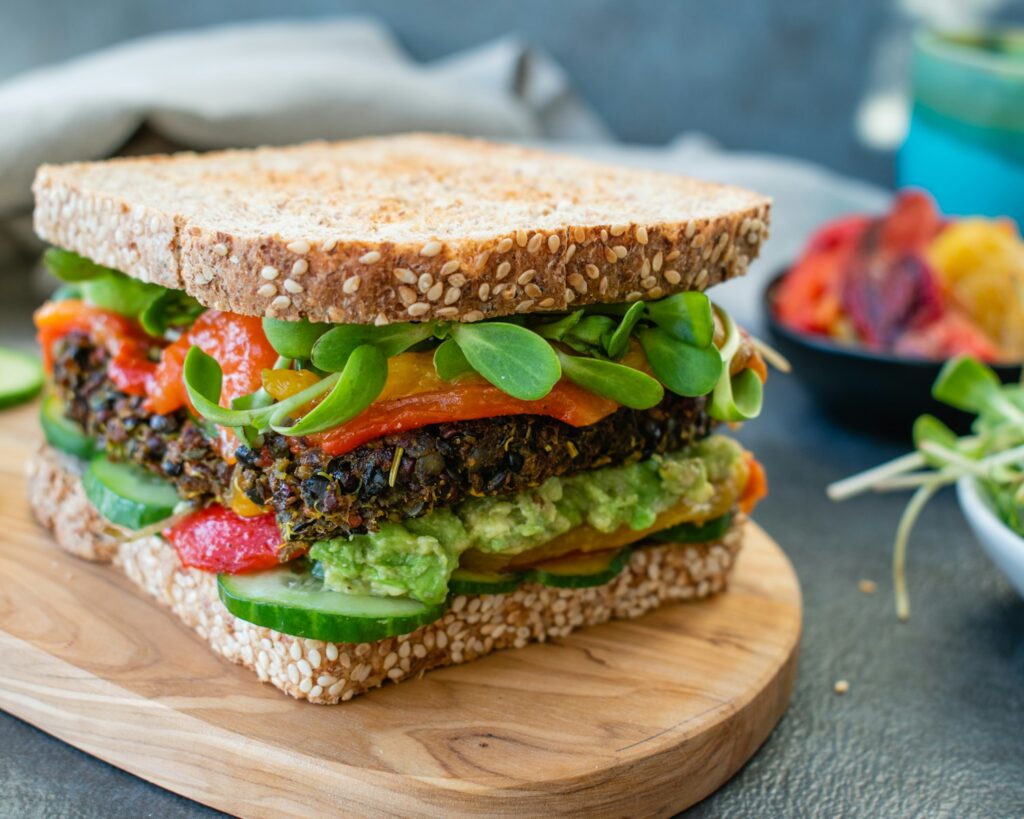Health
The Benefits of Vegan Probiotics
Have you ever wondered about the benefits of incorporating vegan probiotics into your diet? Vegan probiotics, which are derived from plant-based sources, offer a range of advantages for your gut healt…
Have you ever wondered about the benefits of incorporating vegan probiotics into your diet? Vegan probiotics, which are derived from plant-based sources, offer a range of advantages for your gut health and overall well-being. By introducing these beneficial bacteria into your system, you can improve digestion, boost immunity, and enhance nutrient absorption. In addition, vegan probiotics are free from any animal products, making them a sustainable and cruelty-free choice for those following a vegan lifestyle. Discover the numerous benefits of vegan probiotics and how they can positively impact your health.
What are probiotics?
Probiotics are live microorganisms that, when consumed in adequate amounts, confer a health benefit on the host. These beneficial bacteria and yeasts can be found in various foods and supplements. They work by improving the balance of bacteria in our gut, supporting our overall health and well-being.
Definition
Probiotics are defined as living microorganisms that, when ingested, provide a health benefit to the host. They can be found in fermented foods, such as yogurt and sauerkraut, as well as in supplement form. These microorganisms, commonly referred to as “good” bacteria, help improve our digestive system, enhance nutrient absorption, and support a healthy immune system.
Types of probiotics
Probiotics come in various strains, each with its own unique health benefits. Some common types of probiotics include Lactobacillus acidophilus, Bifidobacterium lactis, and Saccharomyces boulardii. Each strain plays a specific role in maintaining the balance of bacteria in our gut, promoting overall gut health.
Why choose vegan probiotics?
Eco-friendly and sustainable
Choosing vegan probiotics not only benefits your health but also the environment. Vegan probiotics are derived from plant-based sources, such as fruits, vegetables, and grains, making them a more sustainable option compared to animal-based probiotics. By opting for vegan probiotics, you are contributing to the preservation of natural resources and reducing your carbon footprint.
Cruelty-free and ethical
Vegan probiotics are produced without any animal-derived ingredients or by-products, making them cruelty-free and ethically produced. Unlike some animal-based probiotics, vegan probiotics are not sourced from animals or involve any animal testing. By choosing vegan probiotics, you are supporting a compassionate and ethical approach to health and wellness.
Suitable for various dietary restrictions
Vegan probiotics are a versatile option that can be consumed by individuals with various dietary restrictions. They do not contain any animal products, making them suitable for individuals following a vegan, vegetarian, or plant-based diet. Additionally, vegan probiotics are generally free from common allergens like dairy, gluten, and soy, making them suitable for those with specific dietary sensitivities or allergies.

Health benefits of vegan probiotics
Enhances digestion and nutrient absorption
One of the primary benefits of vegan probiotics is their ability to enhance digestion and nutrient absorption. These beneficial bacteria help break down food, aid in the absorption of nutrients, and improve the overall efficiency of our digestive system. This can lead to better digestion, reduced bloating, and improved nutrient uptake, ultimately supporting optimal health and well-being.
Supports a healthy gut microbiome
A healthy gut microbiome plays a crucial role in overall health and immune function. Vegan probiotics help maintain a diverse and balanced gut microbiome by promoting the growth of beneficial bacteria and inhibiting the growth of harmful bacteria. This balance is essential for maintaining a strong immune system, optimizing digestion, and reducing the risk of various illnesses and diseases.
Boosts the immune system
By supporting a healthy gut microbiome, vegan probiotics can also boost our immune system. Approximately 70% of our immune system is located in our gut, making gut health crucial for overall immune function. Vegan probiotics help stimulate the production of immune cells, enhance the body’s defense mechanisms, and reduce the risk of infections and diseases.
Alleviates digestive issues such as bloating and gas
If you suffer from digestive issues like bloating and gas, vegan probiotics may provide relief. These beneficial bacteria help restore the balance of bacteria in the gut, aiding in the digestion and absorption of food. By alleviating digestive issues, vegan probiotics can improve overall comfort and promote a healthy and happy gut.
May help manage weight and improve metabolic health
Emerging research suggests that vegan probiotics may play a role in weight management and metabolic health. Certain strains of probiotics have been found to influence metabolism, reduce inflammation, and improve insulin sensitivity. While more research is needed, incorporating vegan probiotics into a healthy lifestyle may have positive effects on weight management and metabolic health.
Natural food sources of vegan probiotics
Fermented plant-based foods
Fermented plant-based foods are an excellent natural source of vegan probiotics. Foods like sauerkraut, kimchi, tempeh, and miso are rich in beneficial bacteria and can provide a natural boost to your gut health. These fermented foods undergo a process where the natural sugars are broken down by bacteria and yeasts, resulting in the production of probiotics.
Sauerkraut
Sauerkraut is a fermented cabbage dish that is rich in probiotics. The fermentation process enhances the nutritional value of the cabbage and introduces beneficial bacteria like Lactobacillus plantarum and Leuconostoc mesenteroides. Incorporating sauerkraut into your meals adds a tangy flavor while promoting a healthy gut.
Kimchi
Kimchi is a traditional Korean dish made from fermented vegetables, such as cabbage, radishes, and garlic. It is a flavorful and nutritious source of vegan probiotics, containing strains like Lactobacillus kimchii and Lactobacillus brevis. Adding kimchi to your meals not only enhances their taste but also provides a probiotic boost.
Tempeh
Tempeh is a fermented soybean product that is popular in vegetarian and vegan diets. It is a rich source of vegan probiotics and contains strains like Rhizopus oligosporus and Bacillus subtilis. Tempeh can be used as a meat alternative in various dishes, providing a healthy dose of probiotics and plant-based protein.
Miso
Miso is a traditional Japanese seasoning made from fermented soybeans, rice, or barley. It contains beneficial bacteria like Lactobacillus plantarum and helps improve digestion and gut health. Miso can be used to add a unique umami flavor to soups, dressings, and marinades while boosting your probiotic intake.
Kombucha
Kombucha is a fermented tea drink that has gained popularity in recent years. It is made by fermenting sweetened tea with a symbiotic culture of bacteria and yeast (SCOBY). Kombucha contains a variety of probiotic strains, such as Lactobacillus and Bifidobacterium. Enjoying a glass of kombucha can quench your thirst while providing a refreshing probiotic boost.
Coconut milk yogurt
Coconut milk yogurt is a delicious and dairy-free alternative to traditional yogurt. Made from fermented coconut milk, it is a rich source of vegan probiotics. Coconut milk yogurt contains strains like Lactobacillus acidophilus and Bifidobacterium lactis, supporting gut health and adding a creamy touch to your meals and snacks.
Vegan kefir
Vegan kefir is a fermented beverage similar to yogurt, but with a thinner consistency. It is typically made from non-dairy milk, such as almond milk or coconut milk. Vegan kefir contains strains like Lactobacillus kefiri and Lactobacillus acidophilus, adding a tangy and probiotic-rich element to your diet.
Pickles
Pickles are a popular condiment made through the process of fermentation. Typically made with cucumbers, pickles can also be made with other vegetables like carrots, radishes, or peppers. Fermented pickles contain beneficial bacteria like Lactobacillus brevis and increase your probiotic intake while adding a tangy flavor to your dishes.
Sourdough bread
Sourdough bread is made from fermented dough, which creates a sour and tangy flavor. The fermentation process introduces lactobacilli bacteria and wild yeasts, making sourdough bread a tasty source of vegan probiotics. Enjoying a slice of sourdough bread can provide a unique and nutrient-rich addition to your meals.

Supplementing with vegan probiotics
Importance of choosing vegan-friendly supplements
If you are unable to consume enough vegan probiotics through natural food sources, supplements can be a convenient alternative. When choosing probiotic supplements, it is important to ensure they are vegan-friendly. Read the product labels carefully to verify that the capsules or tablets do not contain any animal-derived ingredients, such as gelatin.
Types of vegan probiotic supplements
Vegan probiotic supplements come in different forms, including capsules, tablets, powders, and even chewable gummies. Capsules are the most common form and are generally easy to swallow. Powders can be mixed with water or added to smoothies, providing a versatile option for those who prefer not to swallow pills. Choose the supplement form that suits your preferences and needs.
Dosage and usage guidelines
Probiotic dosage and usage guidelines can vary depending on the specific strain and product. It is best to follow the recommendations provided by the manufacturer or consult with a healthcare professional for personalized advice. Generally, starting with a low dose and gradually increasing it is advisable to allow your body to adjust to the introduction of new bacteria.
Bacterial strains to look for in vegan probiotic supplements
When selecting a vegan probiotic supplement, it is important to consider the specific bacterial strains included. Look for supplements that contain well-researched and scientifically supported strains like Lactobacillus acidophilus, Bifidobacterium lactis, and Saccharomyces boulardii. These strains have been studied for their numerous health benefits and are frequently used in vegan probiotic formulations.
Prebiotics and synbiotics in vegan probiotics
Understanding prebiotics and their role
Prebiotics are non-digestible fibers that serve as food for probiotics. They help nourish the beneficial bacteria in our gut, allowing them to thrive and exert their health benefits. Prebiotics are typically found in various plant-based foods, such as fruits, vegetables, whole grains, and legumes. Including prebiotic-rich foods in your diet can enhance the effectiveness of vegan probiotics.
Benefits of synbiotics
Synbiotics are a combination of probiotics and prebiotics. By combining these two components, synbiotics provide a synergistic effect in promoting gut health. Synbiotics can enhance the survival and colonization of probiotics in the gut, leading to improved digestion, better nutrient absorption, and stronger immune function. Including synbiotic-rich foods or supplements in your diet can provide additional benefits beyond probiotics alone.
Sources of prebiotics in a vegan diet
A vegan diet can naturally provide a wide range of prebiotic foods. Some examples of prebiotic-rich plant-based foods include bananas, onions, garlic, leeks, asparagus, oats, flaxseeds, lentils, and chickpeas. Incorporating these foods into your meals regularly can support the growth of beneficial bacteria and optimize the effects of vegan probiotics.

Vegan probiotics for specific health concerns
Digestive disorders such as irritable bowel syndrome (IBS)
Vegan probiotics can be beneficial for individuals with digestive disorders like irritable bowel syndrome (IBS). Certain strains of probiotics, such as Bifidobacterium lactis and Lactobacillus plantarum, have been shown to alleviate symptoms associated with IBS, such as abdominal pain, bloating, and irregular bowel movements. Incorporating these strains into your diet through natural sources or supplements may provide relief.
Allergies and skin conditions
Vegan probiotics can also play a role in managing allergies and skin conditions. Research suggests that probiotics can modulate the immune response and reduce allergy symptoms. Additionally, probiotics have been found to improve skin conditions such as acne, eczema, and atopic dermatitis. Including vegan probiotics in your daily routine may help support a healthy immune system and promote clearer skin.
Mental health and mood disorders
While the connection between gut health and mental health is still being explored, there is evidence to suggest that vegan probiotics may have a positive impact on mental health and mood disorders. The gut-brain axis, which refers to the bidirectional communication between the gut and the brain, is influenced by the gut microbiome. By supporting a healthy gut microbiome, vegan probiotics may contribute to improved mental well-being.
Antibiotic-related imbalances
Antibiotics can disrupt the balance of bacteria in our gut, leading to digestive issues and increased susceptibility to infections. Vegan probiotics can help restore the gut microbiome after antibiotic use by replenishing beneficial bacteria. Lactobacillus acidophilus and Bifidobacterium lactis are commonly used strains that may help prevent antibiotic-related imbalances and support overall gut health.
Women’s health and urinary tract infections
Vegan probiotics can be particularly beneficial for women’s health, specifically in preventing and managing urinary tract infections (UTIs). Lactobacillus strains, such as Lactobacillus rhamnosus and Lactobacillus crispatus, have been found to promote vaginal health by preventing the overgrowth of harmful bacteria and maintaining a healthy pH balance. Including these strains in your diet can support optimal vaginal health and reduce the risk of UTIs.
Guidelines for choosing high-quality vegan probiotics
Look for third-party certifications
To ensure the quality and efficacy of vegan probiotics, look for products that have been third-party certified. Certifications from organizations such as the Non-GMO Project, USDA Organic, or the Vegan Society provide assurance that the product meets specific standards and does not contain any animal-derived ingredients or genetically modified organisms.
Opt for strains with scientific evidence
When selecting vegan probiotics, choose products that contain strains supported by scientific research. Look for strains with well-documented health benefits and studies demonstrating their effectiveness. Lactobacillus acidophilus, Bifidobacterium lactis, and Saccharomyces boulardii are examples of well-researched and commonly used strains in vegan probiotic formulations.
Refrigeration and shelf-stability considerations
Some vegan probiotics require refrigeration to maintain their viability and potency. Pay attention to storage instructions provided by the manufacturer and ensure that the product is stored properly. If you prefer a shelf-stable option, look for supplements that are specifically formulated to withstand room temperature and do not require refrigeration.
Avoid artificial additives and fillers
To ensure you are consuming a clean and natural product, avoid vegan probiotics that contain artificial additives, fillers, or unnecessary ingredients. Read the product labels carefully and choose supplements that are free from artificial colors, flavors, preservatives, and sweeteners.
Check for adequate CFU count
Colony forming units (CFU) represent the number of viable microorganisms present in a probiotic supplement. When choosing vegan probiotics, check the CFU count to ensure that it meets your specific needs. Higher CFU counts may be beneficial for certain health conditions, while lower counts may be suitable for general gut health maintenance.
Taking care of vegan probiotics
Proper storage to maintain viability
Proper storage is essential to maintain the viability and effectiveness of vegan probiotics. Follow the storage instructions provided by the manufacturer, especially regarding refrigeration or room temperature storage. It is important to protect the probiotic bacteria from extreme temperatures and moisture to preserve their potency.
Avoid high heat and humidity
Exposing vegan probiotics to high heat or humidity can significantly reduce their viability. Keep your supplements away from direct sunlight, stoves, ovens, or any other heat sources. Similarly, do not store your probiotics in highly humid environments, such as bathrooms or near steamy showers, as moisture can degrade the bacteria.
Follow expiration dates
Pay attention to the expiration dates of your vegan probiotic supplements. Using expired products may result in reduced effectiveness and could potentially cause harm. Consuming probiotics before their expiration date ensures that you are getting the maximum benefit from the live cultures.
Consider probiotic-rich meal combinations
Incorporating probiotic-rich foods into your meals can further enhance the benefits of vegan probiotics. For example, enjoying a plant-based yogurt with sliced bananas or topping your salad with fermented vegetables can maximize your intake of beneficial bacteria. Experiment with different combinations to create delicious and gut-friendly meals.
Consulting with healthcare professionals
Discussing probiotic use with doctors or dietitians
Before starting any new supplement or making significant dietary changes, it is advisable to consult with a healthcare professional, such as a doctor or dietitian. They can provide personalized recommendations based on your specific health needs and goals. They can also help determine the appropriate dosage and ensure there are no potential interactions with any medications you may be taking.
Individualized recommendations for specific health conditions
If you have specific health concerns or conditions, healthcare professionals can provide individualized recommendations for incorporating vegan probiotics into your treatment plan. They can help identify strains that are most beneficial for your particular health condition and advise on the appropriate dosage and duration of supplementation.
Possible interactions with medications
It is important to consider possible interactions between probiotics and any medications you may be taking. While rare, certain medications can interact with probiotics, affecting their effectiveness or causing unwanted side effects. Consulting with a healthcare professional can help identify any potential interactions and ensure your supplement regimen is safe and effective.
Monitoring probiotic effects and adjusting dosage
Once you start incorporating vegan probiotics into your routine, it is important to monitor their effects and adjust the dosage if necessary. Every individual is unique, and what works for one person may not work the same for another. Pay attention to how your body responds to the probiotics and consult with a healthcare professional if you have any concerns or questions.
In conclusion, vegan probiotics offer numerous health benefits and are a sustainable, ethical, and dietary-restriction-friendly option. Packed with beneficial bacteria, they support digestion, enhance gut health, boost the immune system, alleviate digestive issues, and may even have positive effects on weight management and metabolic health. By incorporating natural food sources like fermented plant-based foods into your diet or considering high-quality vegan probiotic supplements, you can enhance your gut health and overall well-being. Consulting with healthcare professionals and following proper storage and usage guidelines will ensure you receive the maximum benefits from vegan probiotics. So, why not prioritize your gut health and start reaping the rewards of vegan probiotics today?












